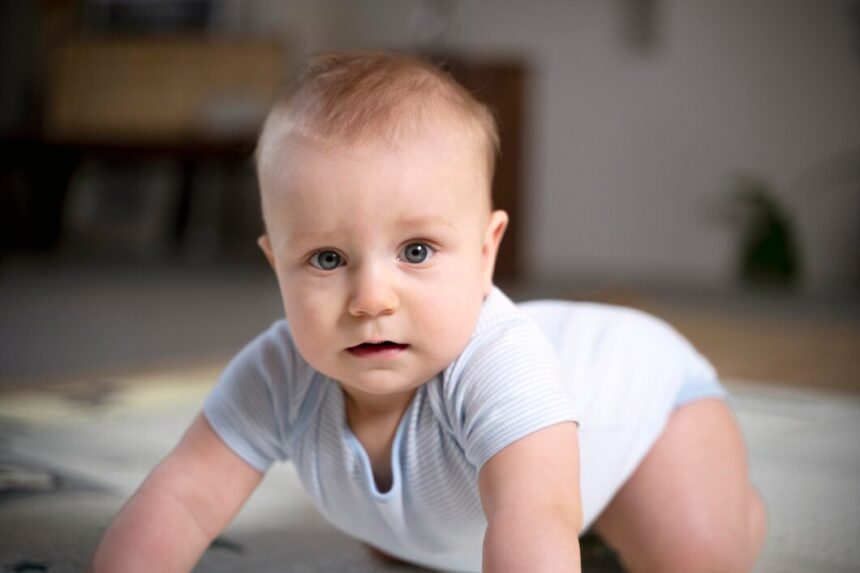As babies approach their first year, each month brings exciting new milestones in their development. At 10 months old, your baby is likely progressing rapidly in various areas of physical, cognitive, and social development. Here are some key milestones you can expect:
Physical Development:
- Motor Skills: By 10 months, many babies can crawl proficiently or even pull themselves up to stand. Some might be taking their first steps, supported by furniture or with assistance.
- Fine Motor Skills: Your baby may begin to pick up small objects using a pincer grasp (thumb and forefinger). They might also enjoy banging objects together or trying to feed themselves finger foods.
Cognitive Development:
- Understanding Object Permanence: At this age, babies typically understand that objects continue to exist even when they are out of sight. This newfound understanding might lead to games like peek-a-boo becoming more engaging.
- Problem-Solving Skills: Your baby might start exploring cause and effect relationships, such as dropping objects to see what happens or figuring out how toys work.
Language and Communication:
- Babbling: Babies at 10 months often engage in extensive babbling, experimenting with different sounds and tones. They may also imitate simple sounds or gestures you make.
- Understanding Simple Words: While not yet speaking many words themselves, babies can comprehend simple words and commands, such as “bye-bye” or “come here.”
Social and Emotional Development:
- Attachment: Your baby is likely to show strong attachment to familiar caregivers, seeking comfort and reassurance from them.
- Imitating Behavior: Babies at this age often enjoy imitating actions they see others do, such as clapping hands or waving goodbye.
Feeding and Sleeping:
- Solid Foods: By 10 months, babies typically have progressed to a variety of solid foods and might be able to self-feed some items with their fingers.
- Sleep Patterns: Many babies this age start to establish more regular nap and sleep schedules, though individual variations in sleep patterns are still common.
Parenting Tips:
- Encourage Exploration: Provide safe spaces for your baby to explore and practice their newfound mobility.
- Read and Talk: Engage your baby in conversations and read books together to foster language development.
- Celebrate Achievements: Acknowledge and celebrate each milestone your baby reaches, whether it’s their first steps or mastering a new word.
- Safety First: As your baby becomes more mobile, ensure your home is baby-proofed to prevent accidents.
By celebrating and supporting your baby’s growth through these milestones, you’re helping them develop the skills they need for future learning and interactions. Enjoy this exciting stage of discovery with your little one!










